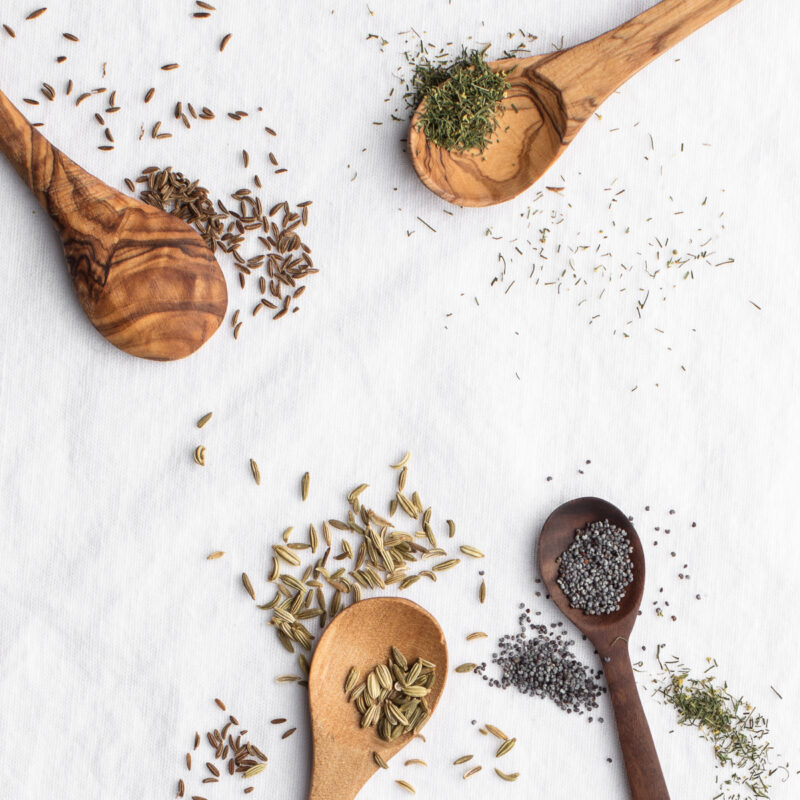Key Takeaways
- A weekly, plant-forward meal plan supports healthy aging by reducing inflammation and lowering risk of cardiovascular disease and cancer—backed by studies linking diet improvements to 13–30% reduced mortality.
- Prioritize rainbow whole foods: leafy greens, cruciferous and root vegetables, legumes, nuts, seeds, whole grains, berries, and healthy fats like extra-virgin olive oil to fuel cellular resilience and longevity.
- Complement meals with longevity habits—meal planning, budget-friendly grocery strategies, time-restricted eating, supplements like NAC/spermidine, and lifestyle practices for stress, sleep, and movement—for an integrated longevity nutrition plan.
Living a long, healthy, and gratifying life is amongst the most common goals. How can we achieve this level of long-lasting optimal well-being? Longevity is influenced by many factors, some of which are beyond our control. However, eating a nourishing diet full of healthy foods is one way you can take charge of your well-being to increase duration and quality of life.
Once you create a goal of eating for longevity, designing a meal plan is a great next step. With my clients, I’ve found that a meal plan is one of the best ways to implement new eating habits. When people get busy or stressed, they tend to fall into old habits, but a meal plan can keep you on track! A meal plan only takes about 30 minutes to create every week and sets you up for success when it comes to eating foods that will help you feel more vibrant and energized.
How Diet Impacts Longevity
How long you live is determined by several factors, such as genetics, environment, and lifestyle. While you can’t change several of these components, you can make small changes to your lifestyle to help you live a longer, happier life. Factors that can be reframed to help you support health and vitality include sleep, physical exercise, stress management, and diet.
I believe diet is one of the most approachable ways to change your health. This is why diet is one of the key factors of my Culinary Alchemy® method, which examines health from a holistic perspective, taking into account energetic, spiritual, mental, and physical well-being.
For decades, a study from the New England Journal of Medicine tracked the eating habits of over 70,000 people and found a clear relationship between diet and lifespan. The study demonstrated the following about healthy eating habits:
- Those who improved their diets by including nutritional foods saw their mortality improve by 13% to 30%
- The risk of death from cardiovascular disease dropped 19% to 28%
- The risk of death from cancer was reduced by 11% to 23%
The researchers recommended the Alternate Healthy Eating Index, the Alternate Mediterranean Diet, and DASH diets as good guidelines for healthy eating for longevity. These diets all prioritize vegetables, fruits, nuts and seeds, healthy proteins and fats, and whole grains.
There is also ample research that demonstrates plant-based diets support longevity. One 2020 study found that plant-based diets are associated with better overall health, citing gut health and lower risk for diseases such as cancer and cardiovascular issues as reasons. Plant-based diets are also nutrient-dense and rich in vitamins, minerals, phytonutrients, fiber, and antioxidants that support overall health.
If you want to change one thing about your diet right now, I recommend focusing on eating the rainbow. Choose whole foods from each color group daily to get the nutrients your cells need to thrive! Learn more about how a plant-based diet supports longevity.

How Meal Plans Support Your Health
One of the best reasons to create a weekly meal plan is that it will help you stay on track with your healthy eating goals when things get hectic. Busy schedules are one of the top reasons I see people slip back into unhealthy eating habits.
According to the National Heart, Lung, and Blood Institute, creating a meal plan can improve your health in the following ways beyond supporting longevity:
- Allows you to plan for your healthy eating
- Helps you to stay within healthy caloric intake limits
- Implements necessary nutrients into your diet
- Increases metabolism
- Limits your intake of sodium, sugar, and unhealthy trans fats
- Portion size control
- Weight loss
Step-By-Step Guide to Creating a Meal Plan
Meal plans help you break your week’s consumption into simple, intentional steps that are easy to follow. After a week of following a healthy meal plan, you’ll likely start feeling more energized, and after a few weeks, you will have formed a healthy habit that will keep you feeling your best for the long run!
Determine Your Goal
One of the most effective ways to make a new habit stick is to define a goal that really matters to you. You might long to increase your lifespan, have more energy for your children, or enhance your work performance. No matter your goal, ensure it’s something truly meaningful to you. Whenever you fall off track, consider it as a learning (not as a failure), and get started again.
Create a Strategy
To achieve any goal, it’s important to have a plan. When will you sit down to create your meal plan? When will you do your shopping? Will you prepare your meals ahead of time? Pack your lunches for work? Create a plan that you think will work and adjust as necessary once you start to implement your meal plan and see room for improvement. It can also be helpful to set a specific timeframe to begin with. Permanent changes to your habits can seem overwhelming; start with just a few days to a week, and if it feels right, keep going!
Shop Smart
It’s helpful to brainstorm your meals before you fill your shopping cart. Find recipes that are exciting to you and choose a day to do your prep. It can also be a good idea to stock your fridge with veggies, fruits, and plant-based proteins like tempeh, tofu, nuts and seeds, beans, and legumes to munch on throughout the day or to have on hand in case you miss a meal in your plan. When you’re at the store, stick to fresh or frozen foods and limit or avoid anything packaged or processed.
Budget
Whether you’re embarking on this journey solo, or getting your whole family involved, it’s easy to overspend if you don’t set a budget. Healthy foods that promote longevity can be surprisingly affordable when budgeted for ahead of time.

Longevity-Boosting Foods to Incorporate into Your Diet
When creating your meal plan, the most important thing is that it is full of nutrient-rich foods that nourish your mind, body, and soul. While most plant whole foods support overall health as you age, some foods are specifically known for their wonderful longevity-boosting properties.
Here are some foods to consider:
- Leafy greens like kale, Swiss chard, and spinach are full of nutrients such as vitamins A and C, and calcium. They also contain antioxidants and fiber that support optimal health and longevity.
- Cruciferous vegetables like broccoli, cauliflower, and kale, contain cancer-fighting compounds and are a good source of fiber, vitamins, and antioxidants. They have also been shown to support healthy aging.
- Root vegetables like sweet potatoes, beets, and carrots support health in numerous ways, from supplying much-needed nutrients, phytonutrients, and fiber to providing antioxidant, metabolic regulating, and anti-cancer properties.
- Legumes, including beans and lentils, supply your body with fiber, protein, and folate. Eating these foods has been shown to reduce the risk of developing conditions such as obesity, diabetes, high blood pressure, high cholesterol and heart disease.
- Nuts are a source of healthy fats, protein, and antioxidants. The unsaturated fats found in nuts may lower cholesterol and protect the heart. Nuts are also thought to protect cognitive health as we age.
- Seeds, such as chia and flax seeds, are nutrient-dense and supply the body with essential nutrients including protein, omega-3s, and calcium. Seeds are known to protect the brain and heart and can help protect against disease.
- Whole Grains are particularly important when they take the place of refined grains. Look to grains like brown rice, oats, buckwheat, farro, and quinoa as core components of your meal plan. Whole grain consumption can support improved cholesterol levels and disease prevention.
Fruit
- Blueberries (and other purple fruits) contain phytochemicals called anthocyanins that have been shown to reduce the risk of cardiovascular disease, death, and type 2 diabetes.
- Tomatoes (yes, actually a fruit!) are high in lycopene, an antioxidant that is known to protect against cardiovascular and neurodegenerative diseases, cancer (especially prostate cancer), and diabetes.
- Avocados (yep, also a fruit) are a great addition to your longevity meal plan. Researchers have found that regularly eating avocados significantly improves diet quality.
Healthy Fats
- Extra-virgin olive oil is rich in polyphenols that have powerful antioxidant and anti-inflammatory properties. One study conducted at Harvard found that higher olive oil consumption was also associated with lower risks of death from cardiovascular disease, cancer, neurodegenerative disease, or lung disease. Additionally, participants who substituted olive oil for butter, margarine, or mayonnaise had a 34% lower death rate than those who didn’t.
- (avocados, nuts, and seeds also fit into this category)
Supplements for Longevity
You can also consider supplements as you’re creating a meal plan. There are quite a few that enhance longevity—NAC helps the body create glutathione, a powerful antioxidant, supplements that support gut health can support lifespan, and spermidine supports cellular health and restoration. The Refresh and Reset supplement is another excellent choice for those looking to detoxify and rejuvenate their body, which contributes to long-term health and vitality.
Time-Restricted Eating and Longevity
Time-restricted eating has been shown to support health in many ways, including enhancing longevity. By putting your body under intentional stress, it activates longevity pathways.
Time-restricted eating isn’t for everyone, but it can be helpful as a part of a longevity meal plan. Read more about my recommendations for time-restricted eating and consult with your doctor before putting it into practice.
Healthy eating is also about letting go of foods that aren’t supporting your mind, body, and soul. Processed foods and refined grains and sugars might taste good in the moment, but regular consumption can cause a litany of health issues.
Sample One-Week Meal Plan
Here are a few example days from a sample one-week plant-based meal plan that I put together for Vegetarian Times:
Day 1
- Breakfast: Avocado toast with sprouts
- Lunch: Grain bowl
- Snack: Hummus and fresh vegetables
- Dinner: Burrito bowl
Day 2
- Breakfast: Smoothie bowl
- Lunch: Kale Immunity Salad
- Snack: Apple and nut butter
- Dinner: Eggplant curry
Day 3
- Breakfast: Tofu scramble
- Lunch: Lentil soup and side salad
- Snack: Chocolate smoothie
- Dinner: Veggie and tofu stir fry
See the full meal plan on Vegetarian Times
Nourishing Recipes for Your Longevity Meal Plan
Nourishing meals can help you reduce inflammation, mitigate health risks, enhance energy, and feed your soul. Here are some of my favorite nourishing, holistic recipes that you can use in your healthy meal plan. Once you find several recipes you love, you can begin to incorporate them into your weekly routine!
Breakfast
Soup & Salad
- Refreshing Watermelon Tomato Gazpacho
- Citrus Berry Salad with a Kumquat Vinaigrette
- Cool and Creamy Chilled Avocado Soup
- Savory Carrot and Apricot Gazpacho
- Potato Leek and Fennel Soup
Lunch & Dinner
Snacks & Appetizers
- Serena’s Radiant Roasted Red Pepper Hummus
- Golden Glow Hummus: Serena’s Carrot & Turmeric Creation
- Serena’s Delectable Blueberry & Walnut Hummus Recipe
- Pineapple-Kiwi Salsa with Baked Cinnamon Tortilla Chips
Longevity-Enhancing Activities
As you begin to integrate your healthy meal plan with your daily life, you may discover that you have the energy to enhance your longevity with additional activities.
Along with healthy eating, the following may help you to increase your longevity and experience positive health changes:
Stress Management: Everybody experiences stress, and in some ways, it can be good for your health, but only in small doses punctuated by recover periods. When stress begins to build up and your body and mind don’t have time to recover, it becomes chronic stress, a major cause of inflammation, which can lead to chronic disease. Research shows that chronic stress can decrease lifespan. Stress is also a cause of cellular aging. Mindfulness practices, such as meditation and digital detoxes, can support healthy stress management.
Intentional Stress: While chronic stress can cause inflammation and lead to disease, intentional stress or adversity can make your body and mind stronger and enhance longevity. Time-restricted eating is just one type of adversity—cryotherapy, exercise, sauna, and hypoxia can also activate these pathways.
Physical Activity: A recent study found that people who engaged in 150–300 minutes per week of moderate-intensity activity, or 75–150 minutes per week of vigorous-intensity activity (a.k.a. the 2018 Physical Activity Guidelines for Americans) reduced their risk of early death by as much as 21%. People who exercised two to four times the recommended amount reduced their risk of early death by as much as 31%. If this sounds like a lot of physical activity, don’t worry; just start moving your body— walk, hike, practice yoga, bike, or try another activity that feels good. Starting the habit of continuous motion that you enjoy will lead you to a place where the activity is supporting your longevity.
Sleep: This everyday activity is one of the best things you can do for your health—sleep is central to optimal function of your brain, hormones, gut, and immune system. While you sleep your body recovers and rejuvenates, removing cellular waste and replenishing the brain and body.
Click here for tips on improving your sleep
Eliminate Toxins: By eliminating habits like smoking, binge drinking, and fast food eating you can immensely support your longevity. Toxins wreak havoc on your health and can quicken the process of aging or lead to disease development. Less obvious toxins such as processed foods, refined sugars, fragrances, and environmental toxins can also negatively impact your health.
Connect with Serena Loves
A longevity meal plan is just one way to take another step toward a vibrant, energetic life. For more tips on how to feel your best in body, mind, and soul, visit Serenaloves.com. Browse the Serena Loves website to shop for holistic products, and check out the blog for the latest insights and tips on holistic wellness.
by





